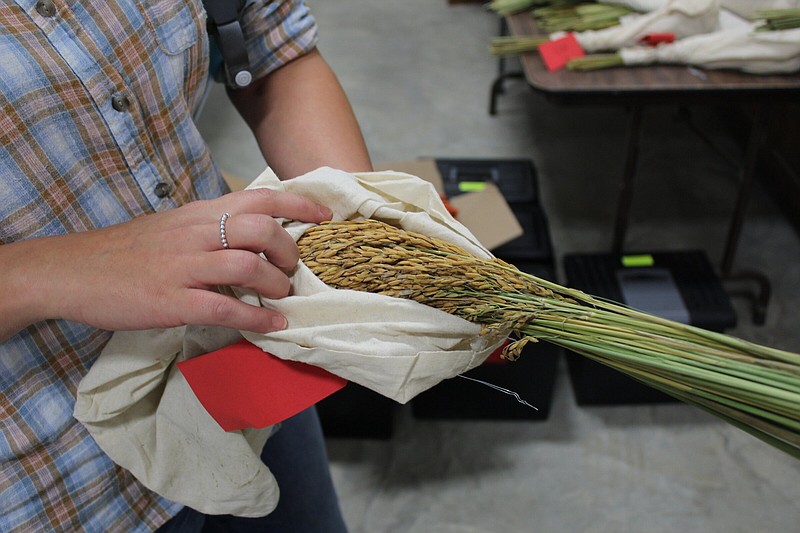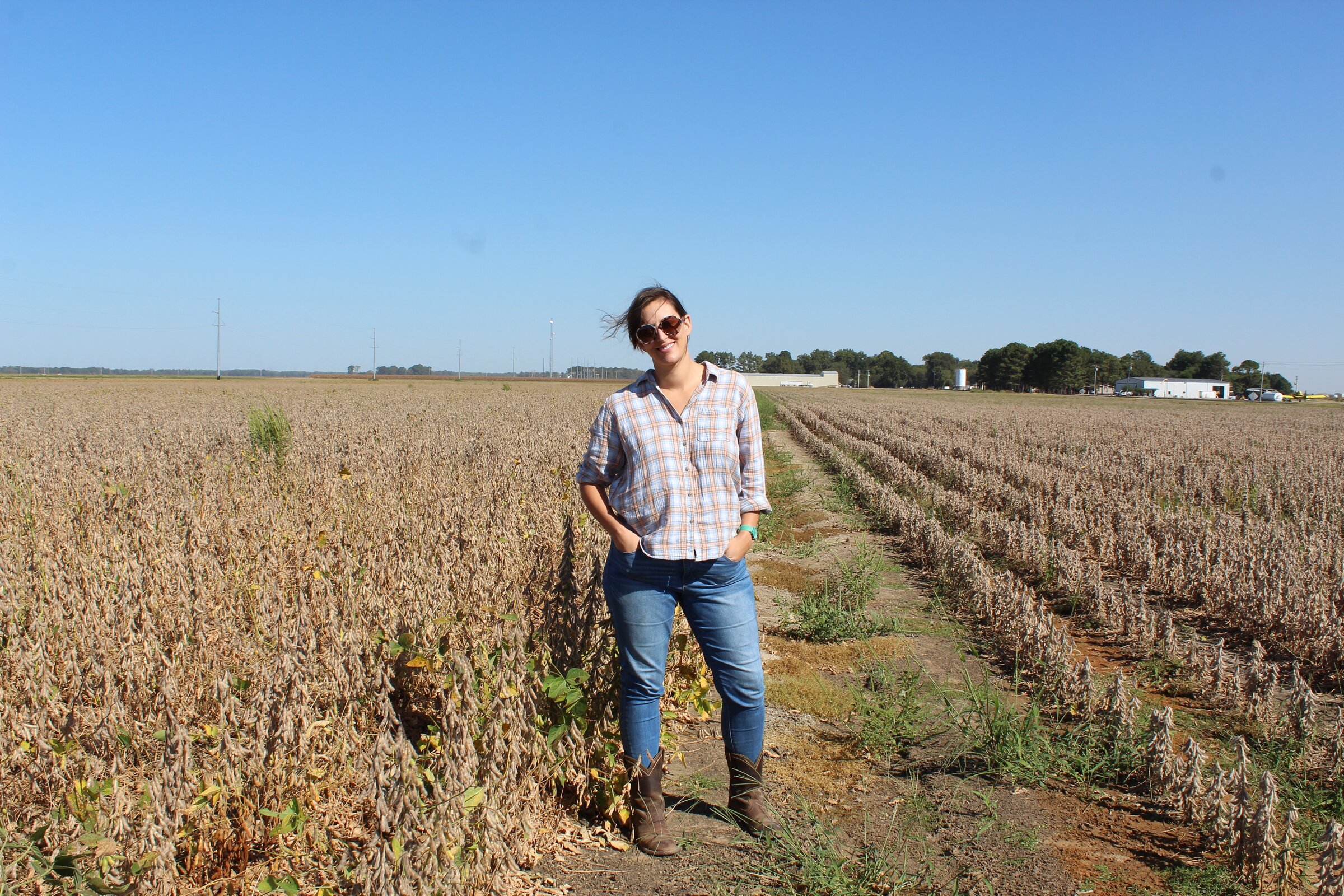SHOFFNER -- Self-described industrial farmer and SFR Seed CEO Hallie Shoffner, who grows row crops for seed production and research in this tiny town, is making a name her herself as one among a small, but growing number of climate conscious farmers in Arkansas.
Shoffner was recently named one of the top ten "Champions of Conservation" by Garden & Gun, a national magazine focused on the American South.
The Shoffner family -- namesake for the town -- has lived in the area near Newport for six generations.
Shoffner is the youngest child of retired parents John and Wendy Shoffner, who started the SFR Seed agricultural research farm in 1988.
Shoffner says farmers are one of the most at-risk groups when it comes to climate change.
She is transitioning to more sustainable, climate-conscious farming practices, eliminating synthetic fertilizers for readily available poultry litter out of Batesville, switching roughly half of her water pumps from diesel to electric and reducing tillage.
Shoffner said she plans to use minimum tillage on the majority of the farm this coming year and will plant cover crops for the first time; a practice touted by agricultural experts for benefits including improved soil structure, weed control and improving organic matter in the soil.
"It's not going to work for every field," Shoffner said. "But it's good to keep roots in the soil at all times during the year."
The farm is also going to transition from flood-irrigation to furrow-irrigation when it comes to growing rice, which studies have shown uses less water, reduces methane emission and doesn't require as much tillage.
While she would like to transition to solar energy to power the farm, Shoffner said it would be almost unaffordable to build a solar project to handle the 1,500-acre farm.
"There are so many things you can do, but the challenge there, and we are experiencing this, is farmers who want to make these changes, both because they are environmentally friendly and they want to save money ... it's challenging because you have to update your infrastructure and you don't see that return on investment immediately," Shoffner said.
Shoffner said it's challenging for farmers who don't have much equity to afford the infrastructure to farm more sustainably. She said she hopes recent federal government policy changes and funding geared toward agriculture related to climate change will support more sustainable practices in American agriculture.
U.S. Agriculture Secretary Tom Vilsack visited Arkansas earlier this month to meet with farmers and discuss new USDA programs as part of the Biden administration's Climate Smart Agriculture Initiative. The program is designed to help farmers shift to sustainable farming practices, establish new markets to create and grow revenue sources and verify and report data that proves to consumers that crops were produced sustainably.
USA Rice Federation, Winrock International and Springdale-based Tyson Foods will take the lead in distributing $160 million in total with pilot projects geared toward rice production, a few row crops, cattle and poultry.
"I'm hoping that they address this issue of farmers wanting to do these things but not being able to do it because they can't afford the infrastructure upgrades," Shoffner said.
"I hope equipment is included; I know it's a tough sell, I mean we just bought a minimum tiller and that cost us $32,000," Shoffner said.
SFR Seed is a contract soybean and rice parent seed production farm that primarily does two things: pre-commercial soybean variety research and production and specialty rice purification.
Some of Shoffner's corn is also sold as deer feed and she also grows some wheat.
Companies send pre-commercial soybean varieties to Shoffner's farm where seeds are planted on small plots and tested for yield and disease resistance.
There are over 250 different varieties of soybeans grown on the farm.
"We don't have a motto exactly, but the reason I like what we do is these companies are putting out these varieties, are breeding them to be much more resilient," Shoffner said.
"They are supposed to yield in high stress situations and maybe you have a soil that's not as fertile, or you have weather that is not ideal, the idea is to yield more on the same or fewer acres in those conditions. With climate change becoming the issue that it has, you're running more risk of yield loss because of weather issues, and these genetics that are coming out into the market are better. We need to feed a lot of people and we can't use any more land, we shouldn't use more land, so we have to get more yield out of what we've got."
SFR Seed workers do field research planting seeds and evaluating them during the growing season, which often means walking through every single foot of every field to make sure what is growing is pure, Shoffner said.
Shoffner's rice ends up in restaurants along the East and West Coasts; the heirloom medium-grain Carolina Gold is their most well-known varietal of rice, which has a hazelnut flavor.
"It's very much prized for its flavor and not for how well it grows in the field, which is very difficult," Shoffner said.
Carolina Gold is the only heirloom variety of rice grown on the farm, while the remaining 19 varieties of rice grown are bred from heirloom seed varieties primarily for flavor, Shoffner said.

